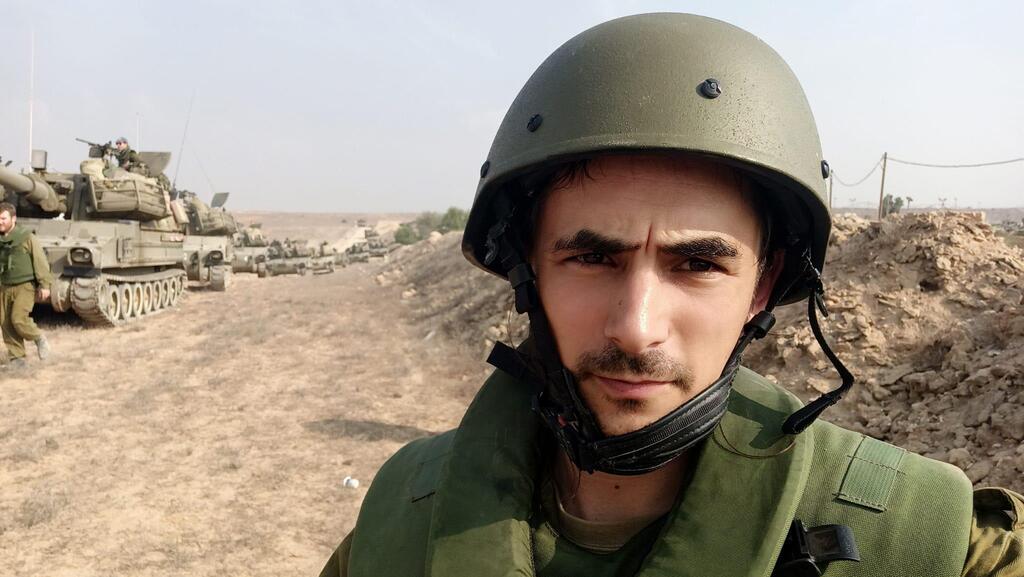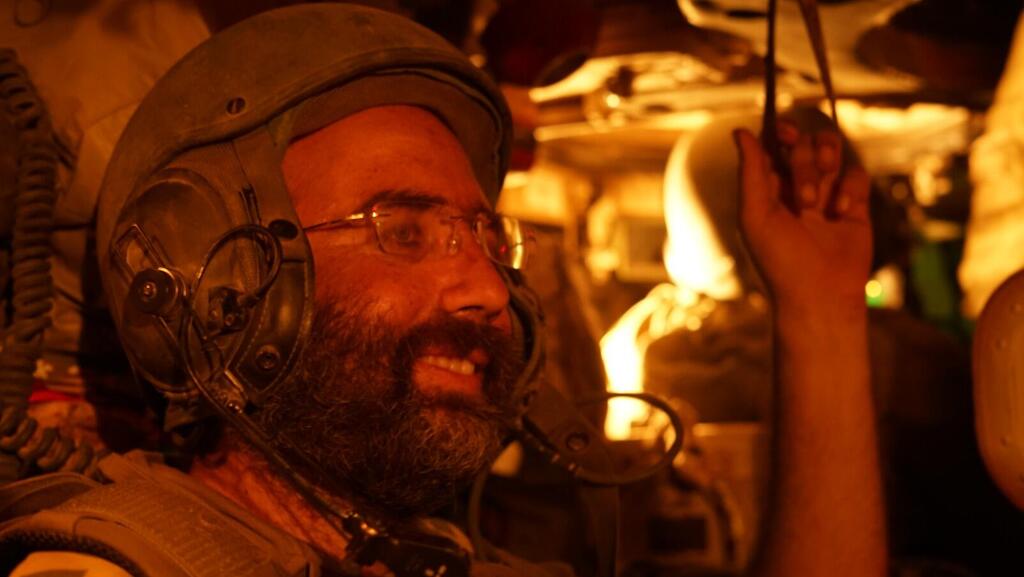Some of the religious Zionist rabbis are among the hundreds of thousands called up to join the reserves since the war broke out, and are now finding time to combine their roles as soldiers and officers with their civilian functions often in need by the troops in the field.
Read more:
Rabbi Avraham Stav who serves in the Artillery Corps, and is deployed in the south, said before the temporary ceas-fire that he tried to continue teaching his students via Zoom.
"I must admit that I felt a need to teach," he says. the military did me a kindness by allowing me to continue. I felt that this was what I missed the most here, teaching Torah."
Do you receive Halakha (Jewish religious law) questions both remotely and from soldiers serving alongside you?
"Of course, from the soldiers here in the battalion and also from soldiers calling from other locations across the country. There are quite a few soldiers who wrote to me, saying they wanted to hear from someone in the field who understands their experiences. There are many questions, especially revolving around Shabbat – leaving before Shabbat and during Shabbat. Questions related to determining who is considered part of the war effort. At the beginning of the war, there were more questions about kosher provisions. There are also questions about family purity, which becomes more challenging during this period."
Stav asks to impart a unifying message: "When I look at my fellow rabbis in the reserves, there's a sense of a desire for unity at any cost, and a willingness to sacrifice for the sake of unity. I have a request that this spirit be preserved and heard even in challenging times. Let's hold off on arguments and disputes until we return."
Several prominent rabbis in the religious Zionist movement have tragically lost sons in this war: Rabbi Benni Kalmanson, the head of Yeshiva in the West Bank settlement of Otniel, mourns his son Elchanan, who was killed while rescuing residents in Kibbutz Be'eri; Rabbi Shlomo Yosef Weitzen, the spiritual leader of P'sagot, also on the West Bank, mourns his son Amichai, who fell in battle against terrorists in Karmei Tzur; Rabbi Tamir Granot, one of the leaders of the Orot Shaul Yeshiva in Tel Aviv, mourns his son Amitai, who was killed by anti-tank fire on the Lebanon border. Elisha Dan, the son of Rabbi Yaakov Dan from the Har Etzion Yeshiva, was severely injured in Gaza, with both of his legs amputated. In both civilian life and the military, religious-nationalist rabbis bear the burden of war in various ways.
Rabbi Matt Schneeweiss, the spiritual leader of Kibbutz Tirat Tzvi, currently serves as the head rabbi of the Armored Corps. "I enlisted to this battalion as a combat soldier, operating a tank for 15 years. They asked me to replace the previous rabbi, and since the beginning of the war, I have been the battalion's rabbi," he explains.
"The role of a battalion rabbi is operational, especially in the most challenging situations, when dealing with casualties. We have a covenant with every soldier, to bring them back as whole as possible. The Jewish army needs to know how to care for its wounded." The battalion's rabbi, is part of the evacuation team and Schneeweiss already participated in evacuating casualties.
Another aspect of his role relates to more spiritual dimension. "At the end of a war, the determination is based on the awareness, morale, and leadership of the soldiers participating in the battle. It's definitely the place for a rabbi to assist the commanders and try to provide them with strength," he says. "To be an additional eye, ear, and support for these missions. I see a great sense of duty and a significant need in this context. Almost a day doesn't go by without soldiers expressing how meaningful this role is for them," he says.
"Being a battalion rabbi in a war is essentially being a community rabbi. Everything happens here in a fast-pace and more intense manner. In this community, many of the troops became fathers since the beginning of the war, there are family members facing illness, friendships forming, and weddings blessed by God. There are also redemption ceremonies and circumcision ceremonies – perhaps not explicitly defined as the rabbi's role, but we encounter these matters as well."
Describing the excitement from the sense of unity he witnesses on the battlefield is challenging for him. "We went to war in a complex societal situation, and suddenly, people from both sides of the social divide, meet and the differences are nullified and erased. Suddenly, we see how everything is unified," he says. "I often speak in the battalion about the feeling and hope that these experiences will be etched in us and accompany us in the future. In the Torah message I sent for Shabbat, I spoke about Jacob's dream, where he saw angels ascending and descending and about the opening of the eyes. The war suddenly allows us to see so many angels among us, people with strength of soul and courage."





